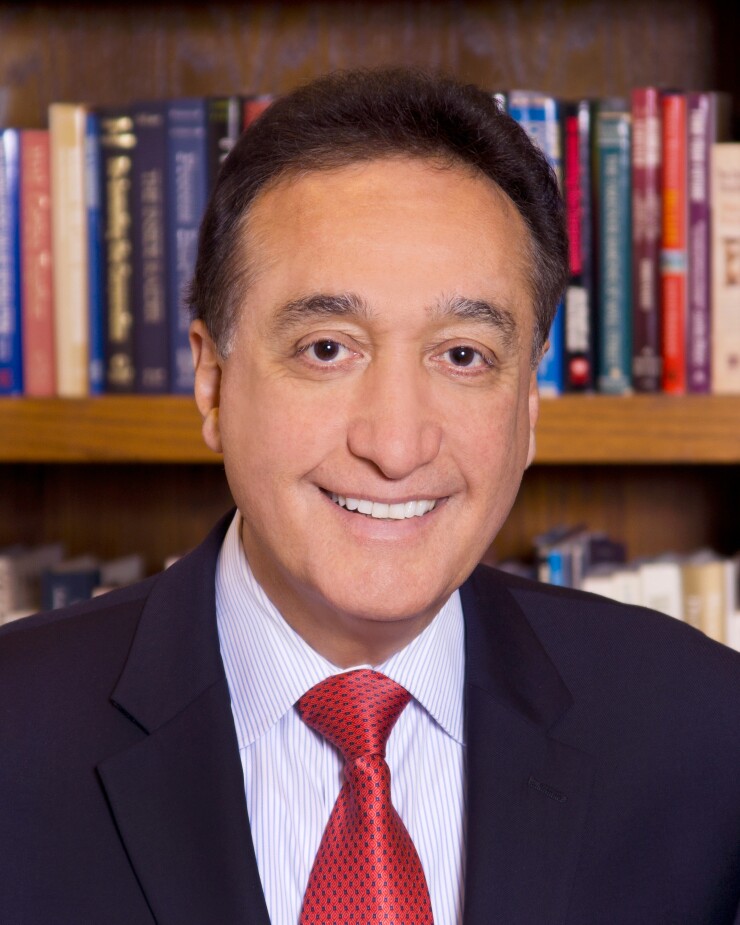PROVIDENCE, R.I. — A "new national narrative" is necessary to grasp U.S. infrastructure needs, former Housing and Urban Development secretary Henry Cisneros said Thursday at the Rhode Island Infrastructure Bank's third annual summit.
"We need to explain to people how national competitiveness, economic growth and the advancing of our equity objectives as a country depend upon the healthy support system for the basic economic functions of the society. The support system is our infrastructure," Cisneros said in an interview after his keynote speech at the Rhode Island Convention Center in downtown Providence.

"We can't make that connection. And much of the success that we have had in our economy will falter in competition with the rising powers that are spending a good deal more in their infrastructure," said Cisneros, a principal in Siebert, Cisneros & Shank, the largest minority-and-women-owned firm on Wall Street.
Cisneros was HUD secretary under President Bill Clinton and is a former mayor of San Antonio, Texas.
Infrastructure, he added, is at a critical inflection point where it interfaces with technology.
"I'm convinced that infrastructure is going to be qualitatively different than what we have seen to this point. The applications of technology change the workings and functioning of infrastructure. "The next iteration of infrastructure spending will not just be more of the same, but for purposes of new functions and new possibilities."
About 300 people attended, up from the last two years, according to RIIB Executive Director Jeff Diehl. "It continues to grow," he said.
About 20 state infrastructure banks operate nationwide, said Cisneros. "Just a handful perform up to expectations and Rhode Island is one of these."
The bank’s predecessor organization, Rhode Island Clean Water Finance Agency, began in 1989. The state expanded its mission in 2013 to include the Municipal Road and Bridge Fund and the Efficient Buildings Fund.
As San Antonio mayor, Cisneros coordinated several bonding initiatives including a tunnel to protect the citys renowned riverwalk. "We did municipal bond issues every year to protect city streets," he said.
Cisneros implored local officials, such as mayors, city council members and first selectmen, to get out front on infrastructure.
"It as to come from the bottom up," he said. "They have to say 'We can't tolerate slow broadband, ineffective mass transit, aging water systems and inadequately sized ports.' That urgency comes from the bottom, but so do the ideas. We have to explain that we need investment in 60-year old schools. We need a plan that is really produced by the people who know best what the priorities for their area are."
Brown University president Christina Paxson touted her school's innovation buildout in the Providence jewelry district, notably the Wexford Innovation Center.
Resilience, she said, extends beyond climate change. "We want everyone to share in the benefits of regional growth," she said. That includes buffering from shocks such as recessions and hurricanes, and slower changes that include gradual climate change and shifts in the U.S. business landscape.
"These are the things that we think of as development economists," she said.





